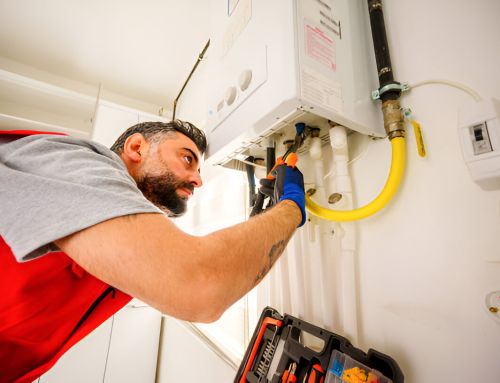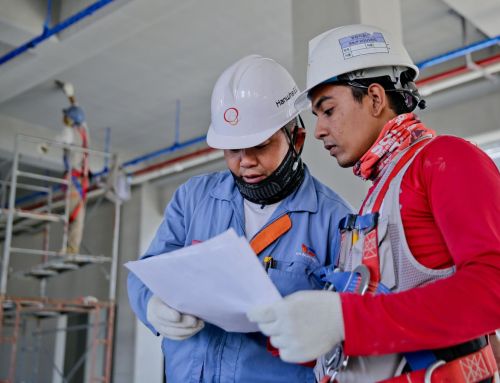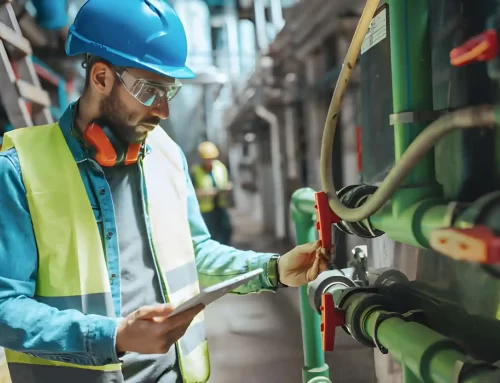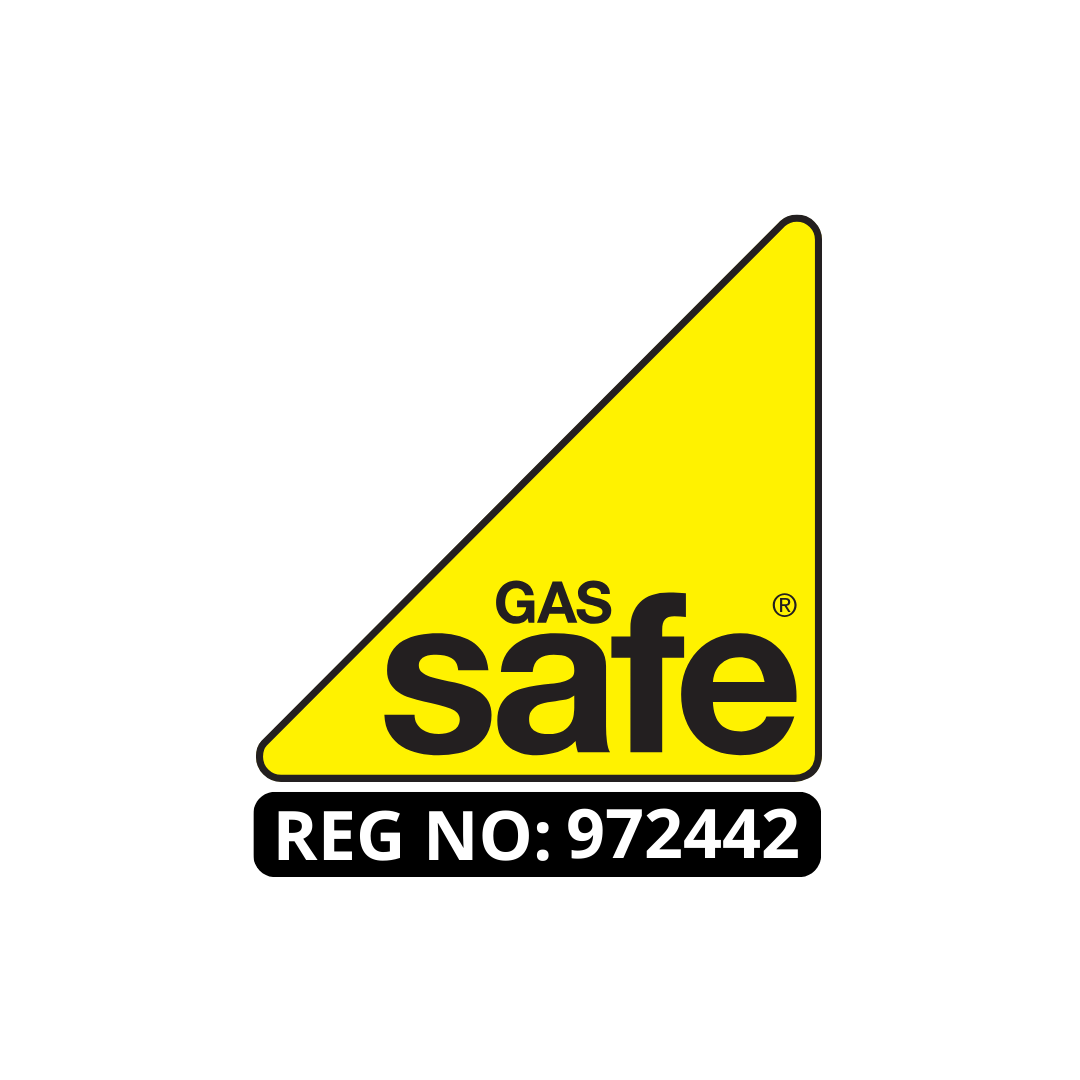
Landlord Gas Safety Certificates play an important role in the rental property sector. These certificates guarantee that gas appliances are safe and compliant with legal standards. The regulations surrounding them can be complex, and costs may vary considerably. Understanding these elements is integral for landlords aiming to protect their investments and guarantee tenant safety. What specific factors influence the cost and compliance of these certificates? The details may surprise you.
Main Points
- Landlord Gas Safety Certificates are legally required annually to ensure the safety of gas appliances in rental properties, protecting both tenants and landlords.
- Non-compliance can lead to fines up to £6,000, imprisonment for severe violations, and liability for gas-related incidents.
- Inspections by a qualified Gas Safe engineer must be conducted annually, ensuring all gas appliances and systems function safely and efficiently.
- Costs for inspections vary based on the number of appliances, property size, and regional pricing; keeping certificates up to date is essential.
- Providing tenants with a valid landlord Gas Safety Certificate within 28 days of inspection fosters trust and ensures legal compliance for landlords.
Landlord Gas Safety Certificates / Your Complete Guide
When prioritise safety, understanding landlord gas safety certificates becomes fundamental. These certificates serve as a significant element in the domain of property management, guaranteeing that gas appliances are safe and compliant with regulations.
For landlords seeking to protect both their investment and the well-being of their tenants, knowledge of this certification is essential.
A gas safety certificate confirms that all gas installations and appliances have undergone thorough inspections by a qualified engineer. This guarantees not only the functionality of the equipment but also the absence of dangerous leaks, thereby promoting a healthy living environment.
In a landscape where freedom and responsibility intersect, landlords who embrace this knowledge empower themselves and their tenants. They provide peace of mind, knowing that safety standards are met, and cultivate trust within their rental community.
Ultimately, understanding gas safety certificates is a step toward promoting secure and liberated living spaces.
What Is a Landlord Gas Safety Certificate?
A Landlord Gas Safety Certificate is a legal document that confirms that gas appliances and installations in rental properties are safe and compliant with regulations.
This certificate is essential for landlords, as it guarantees the safety of tenants and helps prevent gas-related accidents.
Regular inspections and certification not only protect tenants but also safeguard landlords from potential legal issues.
Why landlords need one
Landlords are required to obtain a Gas Safety Certificate to guarantee the safety and compliance of their rental properties. This essential document confirms that all gas appliances, fittings, and flues have been inspected and are safe for use.
By securing a Landlord Gas Safety Certificate, landlords demonstrate their commitment to maintaining a healthy and secure living environment for tenants. Furthermore, it protects landlords from possible legal repercussions and financial liabilities associated with gas-related incidents.
Failure to acquire this certificate may lead to fines, loss of rental income, or even criminal charges. Ultimately, having a landlord Gas Safety Certificate is not just a legal obligation; it represents a landlord’s dedication to the well-being of their tenants and the integrity of their property.
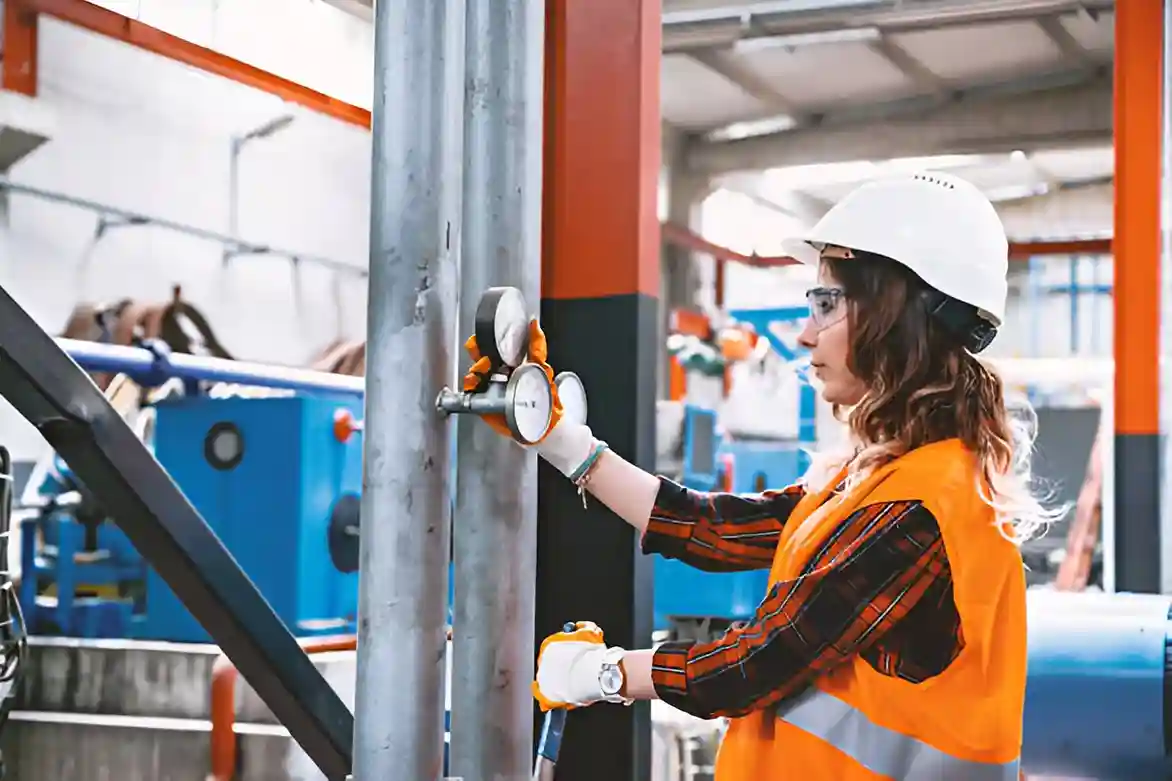
How it keeps tenants safe
The landlord Gas Safety Certificate serves as an essential assurance of safety for tenants residing in rental properties. This certificate confirms that all gas appliances, fittings, and flues have been precisely checked for compliance with safety standards.
By ensuring regular inspections, landlords help prevent possible risks such as gas leaks, carbon monoxide poisoning, and explosions. This measure empowers tenants, allowing them to live without the constant worry of gas-related dangers.
The certificate not only signifies a commitment to tenant safety but also enforces accountability among landlords. In embracing this essential document, tenants can confidently exercise their right to a safe living environment, reinforcing the importance of compliance in promoting peace of mind and overall well-being.
The Legal Requirements for Landlord Gas Safety Certificates
The Gas Safety (Installation and Use) Regulations 1998 establish imperial legal standards for landlords regarding gas safety.
Compliance with these regulations is mandatory, and failing to obtain a valid gas safety certificate can result in significant penalties.
Understanding these requirements is essential for landlords to guarantee the safety of their tenants and avoid legal repercussions.
Gas Safety (Installation and Use) Regulations 1998 explained.
Gas safety is a significant concern for property owners who must adhere to specific legal requirements outlined in the Gas Safety (Installation and Use) Regulations 1998. These regulations mandate that landlords guarantee all gas appliances, installations, and flues are safe and properly maintained. Compliance is essential to safeguard tenants and prevent unsafe conditions.
| Requirement | Description |
|---|---|
| Annual Inspections | Mandatory checks by a Gas Safe registered engineer. |
| Certificate Issuance | A valid Gas Safety Certificate must be provided to tenants within 28 days of inspection. |
| Maintenance Records | Landlords must keep records of all work and safety checks. |
| Tenant Awareness | Landlords should inform tenants about gas safety and appliance usage. |
Understanding these regulations empowers landlord gas safety certificate to fulfil their responsibilities while guaranteeing tenant safety and comfort.
Penalties for not having a valid certificate
Failing to obtain a valid landlord Gas Safety Certificate can lead to significant legal repercussions for landlords, as compliance with gas safety regulations is not optional.
The penalties can include hefty fines, which may reach up to £6,000 per offence, or even imprisonment for up to two years. Additionally, landlords may face civil liability in the event of gas-related incidents, exposing them to claims from tenants or their families.
Beyond financial penalties, the lack of a valid certificate can severely damage a landlord’s reputation and their ability to rent properties in the future.
Ultimately, prioritising gas safety is not just a legal obligation but a fundamental responsibility that guarantees the well-being of tenants and the integrity of rental properties.
How Often Do Landlords Need a Gas Safety Certificate?
How frequently must landlords guarantee compliance with gas safety regulations?
Landlords are required to obtain a Gas Safety Certificate annually for each rental property. This guarantees that all gas appliances, fittings, and flues are safe for use.
The importance of regular inspections cannot be overstated, as they safeguard the well-being of tenants while promoting a sense of security in their living environment.
- Each property must undergo an inspection every 12 months.
- Certificates must be issued by a qualified Gas Safe registered engineer.
- Landlords must provide tenants with a copy of the certificate within 28 days of the inspection.
What to Expect from a Gas Safety Inspection
What happens during a gas safety inspection? A qualified gas engineer conducts a thorough examination of all gas appliances, pipework, and ventilation systems within a property. The inspection aims to ascertain that everything operates safely and efficiently, reducing risks of leaks or malfunctions.
The engineer will check for proper installation and functionality of appliances such as boilers, cookers, and heaters. They will also inspect flues for blockages and ascertain adequate ventilation in the property.
Additionally, the engineer will measure gas pressure and perform safety checks to confirm that the appliances meet current safety standards. This process typically takes around 30 to 90 minutes, depending on the number of appliances present.
Once the inspection is complete, the engineer will provide a landlord Gas Safety Certificate if the property passes all checks. The landlord gas safety certificate serves as proof of compliance and is essential for landlords to maintain a safe living environment for tenants.
How Much Does a Landlord Gas Safety Certificate Cost
The cost of obtaining a landlord’s gas safety certificate can vary greatly based on several factors, including the location, the number of gas appliances in the property, and the specific rates charged by gas engineers. Typically, landlords can expect to pay between £50 and £100 for the certificate.
Key factors influencing the cost include:
- Geographical Location: Prices may be higher in urban areas compared to rural settings.
- Number of Appliances: More gas appliances generally lead to increased inspection time and costs.
- Engineer Rates: Different engineers may have varying fee structures, affecting the final price.
Landlords seeking to maintain their properties in accordance with safety regulations should carefully consider these elements to guarantee they find an affordable and reliable gas engineer.
Awareness of these factors empowers landlords to make informed choices, contributing to a harmonious rental experience.
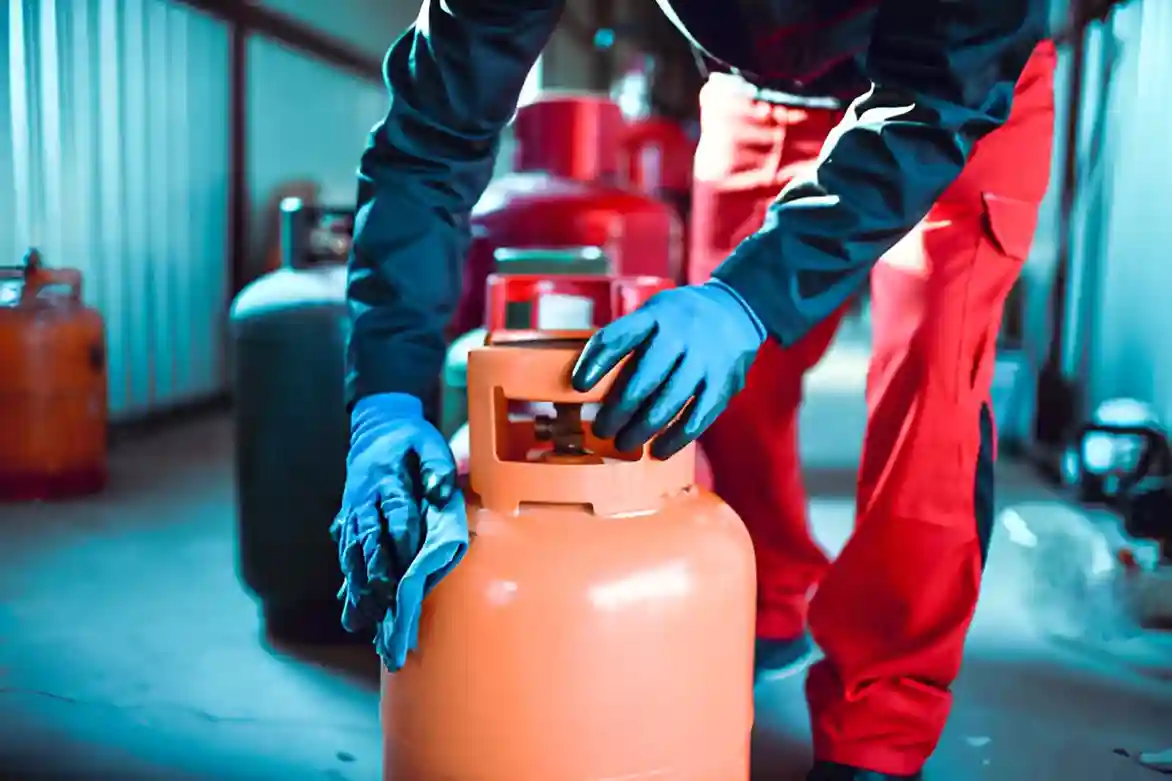
Benefits of Keeping Your landlord Gas Safety Certificate Up to Date
Maintaining an up-to-date landlord gas safety certificate is essential for landlords, as it not only guarantees compliance with legal requirements but also enhances tenant safety.
An updated certificate demonstrates a landlord’s commitment to protecting their tenants, fostering trust and a positive landlord-tenant relationship. This proactive approach can lead to increased tenant retention, reducing turnover costs associated with finding new occupants.
Moreover, a current gas safety certificate can help landlords avoid legal repercussions, including hefty fines or legal disputes. Regular inspections also recognise threats, allowing for timely repairs that guarantee the property remains safe and comfortable.
In addition, having an up-to-date certificate can make a property more attractive to prospective tenants, as safety features are often a top priority for renters.
Ultimately, staying current with gas safety certifications empowers landlords to provide a secure living environment while enjoying peace of mind.
Legal Duties Around Landlord Gas Safety Certificates in the UK
Landlords in the UK must adhere to specific legal duties concerning gas safety certificates to guarantee the safety of their tenants. Compliance with the Gas Safety (Installation and Use) Regulations 1998 is essential, as it protects both landlord and tenant rights.
The responsibilities include:
- Annual Inspections: Landlords are required to conduct gas safety checks at least once every 12 months by a registered Gas Safe engineer.
- Record Keeping: A gas safety record must be provided to tenants within 28 days of the inspection, ensuring transparency and accountability.
- Appliance Safety: All gas appliances must be maintained and safe for use, creating a secure living environment.
How Much Do Landlord Gas Safety Certificates Cost in 2025?
As gas safety regulations continue to evolve, understanding the costs associated with obtaining a landlord gas safety certificate in 2025 becomes essential for property owners.
The price for acquiring this certificate typically ranges from £60 to £120, depending on various factors such as the size of the property and the complexity of the gas systems involved. Additionally, regional variations can impact pricing, with urban areas often charging more due to higher demand for qualified professionals.
Landlords should also consider the costs of any necessary repairs or maintenance identified during the inspection, which may add to the overall expenditure.
While these costs are an essential investment in ensuring tenant safety and compliance with legal obligations, property owners must remain vigilant about their budget. Staying informed about industry standards and competitive rates can empower landlords to make prudent financial decisions regarding gas safety compliance.
Benefits of Keeping Your Landlord’s Gas Safety Certificates Up to Date
Ensuring that landlord gas safety certificates are kept up to date is essential not only for compliance with legal obligations but also for fostering tenant trust and safety.
By maintaining current certificates, landlords can enjoy several benefits that contribute to a more harmonious rental experience.
- Legal Compliance: Staying updated helps avoid fines and legal issues, ensuring peace of mind.
- Tenant Satisfaction: Providing a safe living environment increases tenant confidence and satisfaction, promoting longer tenancies.
- Property Value: Regular checks maintain the property’s condition, ultimately protecting its value and appeal in the market.
These advantages underscore the importance of prioritising gas safety certificates.
An up-to-date certificate not only safeguards tenants but also empowers landlords to operate with integrity and responsibility, nurturing a sense of freedom for both parties in their rental relationship.
Choosing a Gas Safe Engineer for Landlord Gas Safety Certificates
When selecting a Gas Safe engineer for landlord gas safety certificates, it is essential to prioritise qualifications and experience to guarantee compliance and safety.
A reputable engineer should possess valid Gas Safe registration and relevant certifications, ensuring they are qualified to handle the specific gas appliances present in the property.
Landlords should seek out professionals who have a proven track record and positive reviews, reflecting their reliability and expertise.
Additionally, obtaining multiple quotes can aid in making an informed decision without compromising quality.
It is also beneficial to verify that the engineer is familiar with the latest regulations and safety standards, as this knowledge is imperative for accurate inspections and certifications.
Ultimately, choosing the right Gas Safe engineer empowers landlords to maintain a safe living environment for tenants, fostering peace of mind and a commitment to safety in their properties.
Landlord Gas Safety Certificates vs. Homeowner Gas Checks
While both landlord gas safety certificates and homeowner gas checks serve the purpose of ensuring safety in gas appliance usage, they differ considerably regarding regulatory requirements and responsibilities.
Landlords are legally obliged to obtain a gas safety certificate annually, ensuring their properties meet safety standards. Homeowners, however, are not mandated to undergo regular checks, although it is highly recommended for personal safety.
Key differences include:
- Regulatory Obligations: Landlords must comply with strict regulations; homeowners have more flexibility.
- Frequency of Checks: Landlords require annual inspections; homeowners can choose when to conduct checks.
- Scope of Responsibility: Landlords are accountable for tenant safety; homeowners manage their own safety.
Understanding these distinctions allows individuals to make informed choices about gas safety, ultimately supporting their desire for freedom in managing their properties and personal environments.
How to Obtain Landlord Gas Safety Certificates Quickly and Easily
Obtaining landlord gas safety certificates can be a straightforward process if approached methodically. Landlords should prioritise scheduling a qualified Gas Safe registered engineer to conduct an inspection of all gas appliances. This guarantees compliance with legal requirements and promotes tenant safety.
Here’s a simple guide to streamline the process:
| Step | Action | Duration |
|---|---|---|
| 1. Find an Engineer | Research and select a Gas Safe engineer | 1-2 hours |
| 2. Schedule Visit | Set an appointment for the inspection | 1-2 days |
| 3. Inspection | The engineer conducts the safety check | 1 hour |
| 4. Receive Certificate | Obtain the gas safety certificate | Same day |
Frequently Asked Questions
No, a landlord cannot perform the gas safety check themselves. It must be carried out by a qualified Gas Safe registered engineer to guarantee compliance with safety regulations and protect tenants’ well-being.
Failing to obtain a gas safety certificate can lead to legal penalties, including fines or imprisonment. Additionally, landlords may face liability in case of accidents, compromising tenant safety and potentially resulting in costly civil lawsuits.
Yes, specific regulations exist for commercial properties concerning gas safety. These regulations mandate regular inspections, maintenance, and compliance with safety standards to guarantee the well-being of occupants and prevent risks associated with gas appliances.
Tenants can report unsafe gas appliances to landlords by documenting the issue, including photographs or descriptions, and submitting a written request. This encourages prompt action, ensuring safety and compliance with regulations for their living environment.
Gas safety certificates cannot be directly transferred to new tenants. Each tenancy requires a valid certificate, ensuring that appliances remain safe and compliant. Landlords must obtain a new certificate for each tenant’s occupancy.
Conclusion
In conclusion, obtaining and maintaining Landlord Gas Safety Certificates is essential for compliance with legal regulations and ensuring tenant safety. Regular inspections by qualified Gas Safe registered engineers not only protect landlords from potential fines but also build trust with tenants. By understanding the requirements and choosing the right professionals, landlords can effectively navigate the process, ensuring their properties remain safe and compliant. Prioritising these certificates is an essential step in responsible property management.
About the Author: Atia Amin
Related Posts
Get Social
Recent Posts
- Fire Safety Certificate London for Commercial and Residential Buildings
- Fire Safety Planning and fire risk assessment London for Building Safety
- Top Reasons to Invest in Fire Alarm Installation London for Safety and Compliance
- Gas Safety Certificate London: Protecting Occupants and Property Value
- EPC London: Everything You Need to Know About Energy Performance


